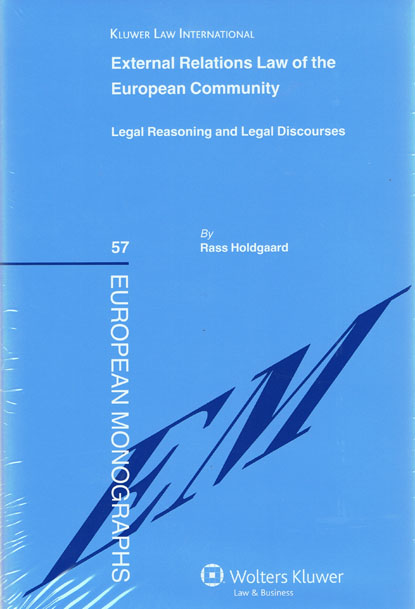
External Relations Law of the European Community begins by noting two common characteristics of legal analyses in the field of EU external relations. First, most legal analyses assume that EC external relations law cannot be studied or applied without a constant awareness of the underlying political dynamics. Yet, the same analyses fail to explain how these ‘dynamics’ are to be understood, assessed and systematically applied.
This pragmatic outlook reduces the importance and value of a self-reflective, rational and coherent legal language. Second, most legal analyses tend to focus only on narrow segments of the ECJ’s case law, often taking as their points of departure individual cases or a group of topically related cases.
This ‘commentary’ approach disregards the general inter-connectedness of legal structures and the recurring meaning configurations in the field. Against this backdrop, the author sets out to strengthen the legal language – both theoretically and practically - in the field of EC external relations. The first two parts of the book provide, with extensive references, an in-depth legal analysis of a wide range of topics pertaining to:-
In the third part of the book, the author develops and applies a theoretical and methodological framework inspired by discourse analysis. This novel approach is used to identify and describe some of the most significant legal discourses in EC external relations. This part of the book provides – from an orthodox lawyer’s perspective - an accessible account of a number of theoretical and analytical issues, including: